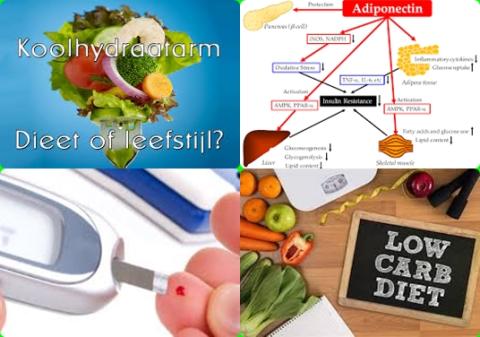
Objectives:
Does a low-carbohydrate diet (LCD) causally increase adiponectin concentration in adults?
Study design:
This review article included 11 RCTs with 534 participants in low-carbohydrate diet group and 513 participants in control group (group without a low-carbohydrate diet).
Proportion of carbohydrate from calorie was from 4 to 34% (4-34 En%).
Time of the follow-up varied between studies and ranged from 6 to 152 weeks.
Meta-regression analysis revealed that age [β = 0.04, p = 0.15], baseline BMI [β= -0.15, p = 0.15], time of follow-up [β = 0.01, p = 0.17], energy percentage of carbohydrates [β = 0.004, p = 0.90], energy percentage of protein [β = -0.12, p = 0.08], energy percentage of fat [β = 0.20, p = 0.61] and baseline adiponectin [β = 0.001, p = 0.97] are not sources of heterogeneity
Results and conclusions:
The investigators found low-carbohydrate diet significantly increased adiponectin concentration [0.02 µg/mL, 95% CI = 0.01 to 0.03, p 0.001].
The investigators found dose-response analysis indicated a nonlinear association between the percentage of carbohydrate and change in adiponectin level from baseline [p = 0.04].
The investigators found in subgroup analysis based on the proportion of carbohydrate from calorie, there was a significant increase in adiponectin concentration in studies that prescribed 30% of calorie from carbohydrates [0.12 µg/mL, 95% CI = 0.07 to 0.18].
In contrast, diets which consisted ≥30% of carbohydrates had no significant effect on adiponectin [0.50 µg/mL, 95% CI = -0.46 to 1.48].
The investigators concluded that a diet with 30% of calorie from carbohydrates (diet with 30 En% carbohydrates) causally increases adiponectin concentration in adults.
Original title:
Effect of low-carbohydrate diet on adiponectin level in adults: a systematic review and dose-response meta-analysis of randomized controlled trials by Shemirani F, Golzarand M, […], Mahmoudi M.
Link:
https://pubmed.ncbi.nlm.nih.gov/33455438/
Additional information of El Mondo:
Find more information/studies on carbohydrate consumption, diabetes and cardiovascular diseases right here.
The most easy way to follow a diet with maximum 30% of calorie from carbohydrates (diet with 30 En% carbohydrates) is to choose only meals/products with maximum 30 En% carbohydrates. Check here which products contain maximum 30 En% carbohydrates. However, the most practical way to follow a diet with maximum 30 En% carbohydrates is, all meals/products that you eat on a daily basis should on average contain maximum 30 En% carbohydrates.
30 En% carbohydrates means that the total amounts of carbohydrates make up for a 30% of the total kcal of the diet.
Adiponectin is a protein hormone produced and secreted exclusively by adipocytes (fat cells) that regulates the metabolism of lipids and glucose. Adiponectin influences the body's response to insulin. Adiponectin also has antiinflammatory effects on the cells lining the walls of blood vessels.